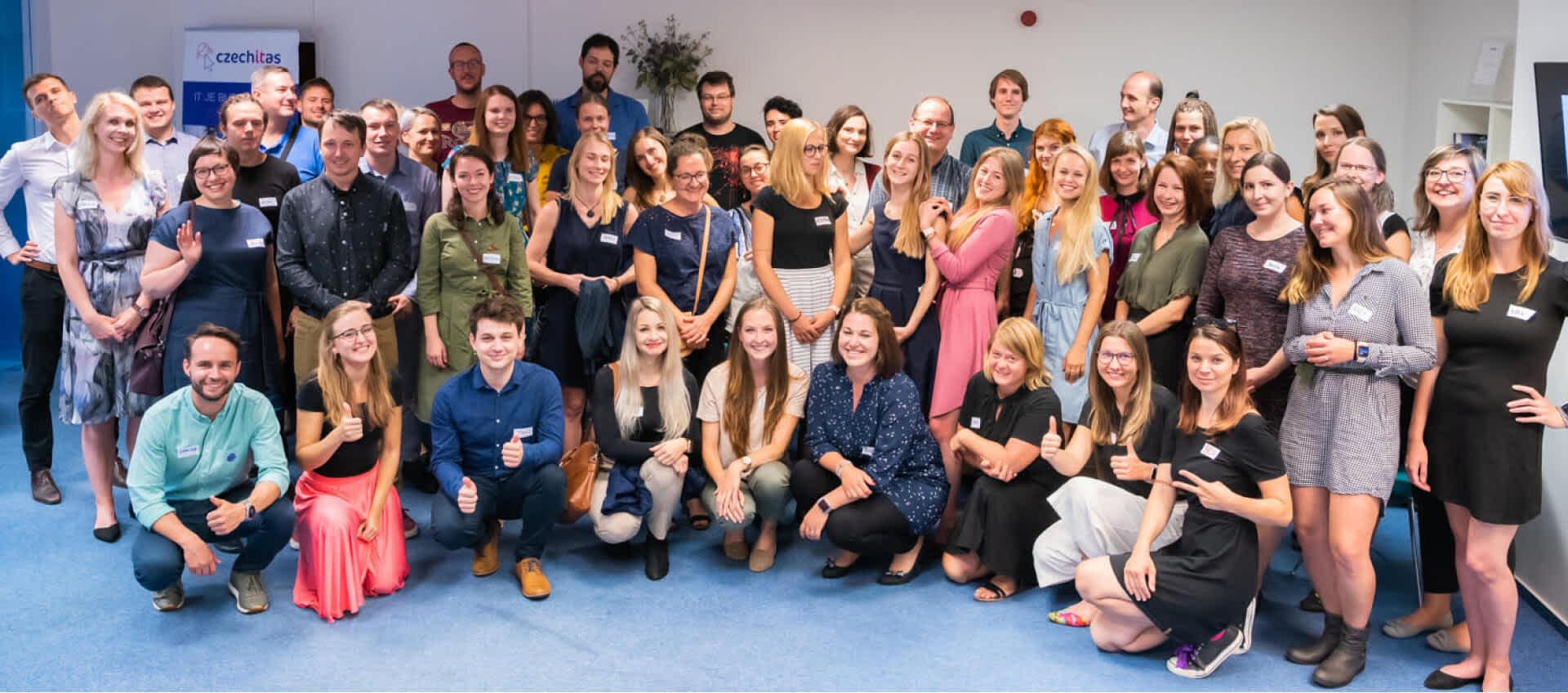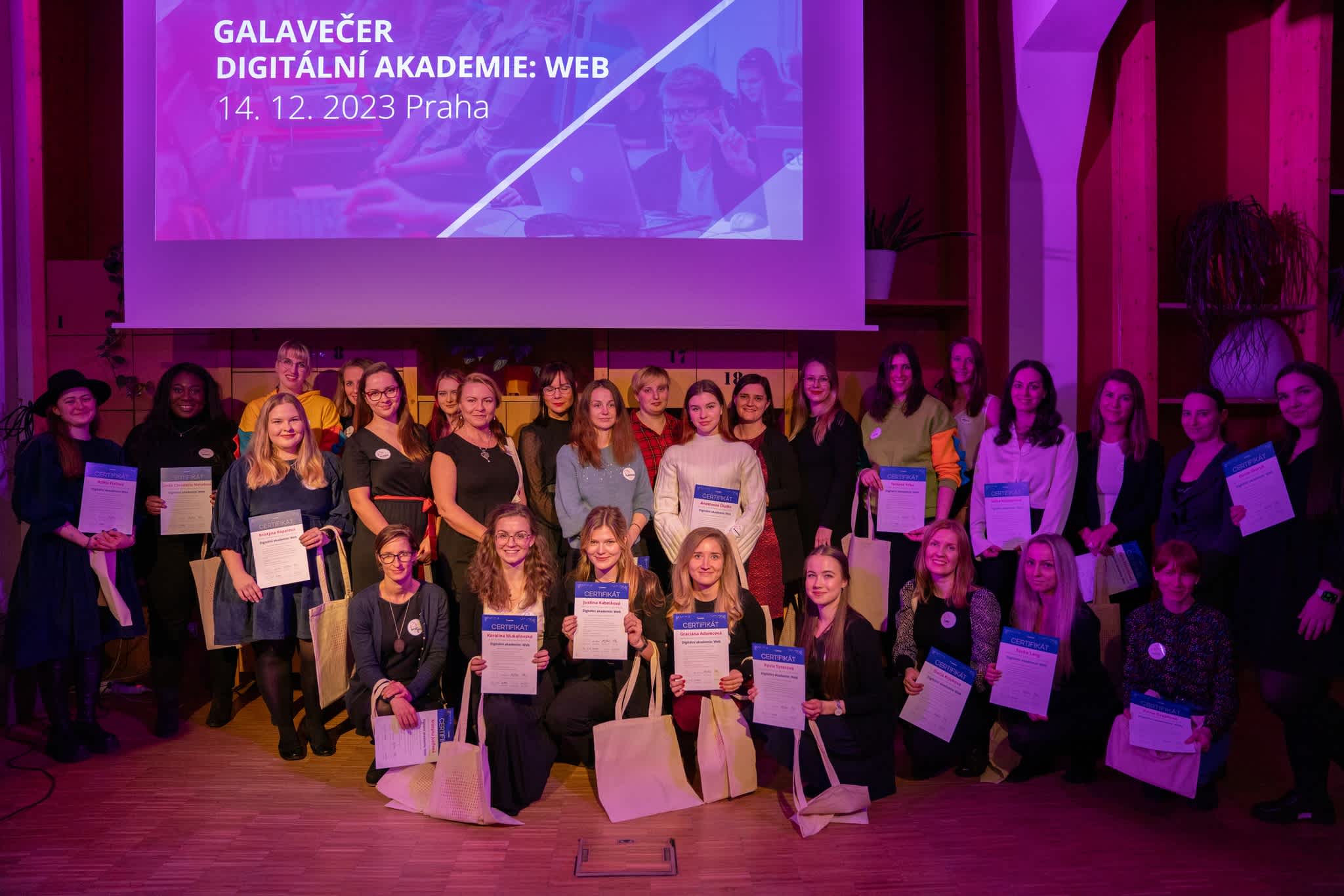Bernadette and Czechitas: Empowering the Next Generation of Women in Tech

Bernadette has been a supporter of Czechitas and has partnered with them since the spring of 2020. Czechitas is an NGO committed to fostering women's talents in technology. You can read more about it here.
The longer we participate in Czechitas the more we can show and encourage students. Niki Kabatova came from the Czechitas programme and has been with us for 2 years as a Midweight Front-End Developer at Bernadette.
Recently she was invited to the Czechitas podcast, where she was interviewed in detail, telling her story from living in Vietnam through her journey and transformation into IT and, a successful participant in the Czech Survivor.
Here is the translation of it:
Czechitas Interview with Niki: https://www.youtube.com/watch?v=qy-9PimTo-s
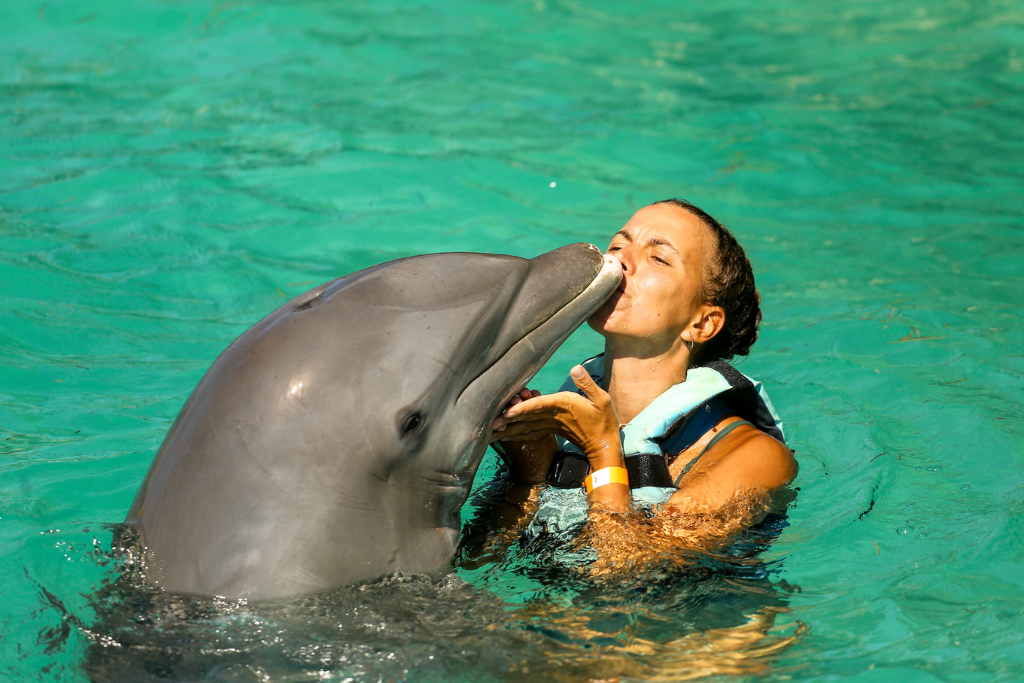
Beginnings in Vietnam
First, I'd like to ask about your journey to Vietnam, where your interest in IT was sparked. You initially studied hospitality, is that right?
Yes, I studied hospitality and tourism.
So tourism turned into a trip to Vietnam, where you stayed for two years, and that’s when things changed after you met digital nomads?
Exactly. When I was around fifteen, I was already thinking about what I’d do next and that I might enjoy something in IT, with computers. I was thinking more about graphic design, but I was somehow told that women don’t belong in IT and that it wasn’t suitable for them.
Who told you that? At Czechitas, we try to dispel these myths, and it always saddens us when we hear that women have had such experiences, as you’re describing.
It was from people around me. I can’t remember exactly if it was said at home or in a wider circle of friends. I wanted to develop games or do game graphics, and they weren’t on board with that.
Did you encounter IT at school, like in computer science classes?
Yes, but it wasn’t anything that attracted me. We mostly just played games or surfed the internet. And it’s like that almost everywhere in elementary and high school.
So you were most interested in the gaming industry...
I’m not a huge gamer, but I enjoy seeing what goes on behind a game. I don’t play, but I like watching videos of people playing. I know that if I started playing something with a story, I’d spend way too much time on it. I’d have to play professionally to justify it.
But you didn’t have time to play in Vietnam.
No, no. In Vietnam, I travelled for a while and met nomads. I was completely fascinated by them. I thought it was amazing, that I wanted to experience exactly that—being able to travel and work simultaneously. Right after arriving on Phu Quoc Island, I met a girl who was a graphic designer but worked as a nomad and had travelled all over Asia. That inspired me.
When you got excited about it from the start and ended up staying there for two years, was this idea growing inside you the whole time?
Yes, the desire gradually developed. I saw it and thought, yes, I want to do that. But at the same time, I didn’t even know how long I’d stay in Vietnam. I was supposed to go there for three weeks, but I ended up staying for two years.
That wasn’t the original plan...
No, the original plan was just a three-week vacation, to travel through Vietnam from south to north and then go home. But I liked it so much that I decided to stay. I had nothing in the Czech Republic, I had closed everything, work and all. So I stayed and figured out what I wanted to do. I taught children to dance, I taught English, and I volunteered. And I increasingly met people who were teaching English but also working as nomads in some way. Or they were developers, and many were graphic designers. And I thought I had to move forward somehow. So I wanted to return to the Czech Republic, get everything I needed to go to New Zealand, live in a van, travel around New Zealand, and live there on a work & holiday visa. And I slowly started exploring what I could do—whether I wanted to do graphic design or maybe try programming.
Did you start working on this after you returned? Or were you already consulting with the nomads on-site, like looking over their shoulders, being interested in what they were doing, and maybe asking what might interest you? I ask because I’m curious how you got into frontend development.
Yes, frontend. I didn’t ask them what would suit me, but I looked over their shoulders and figured out for myself what I might enjoy. When I returned to the Czech Republic, I planned to stay for just a little while. I found a job in Norway, where I would earn money in hospitality for travelling in New Zealand and where I could learn programming during my travels.
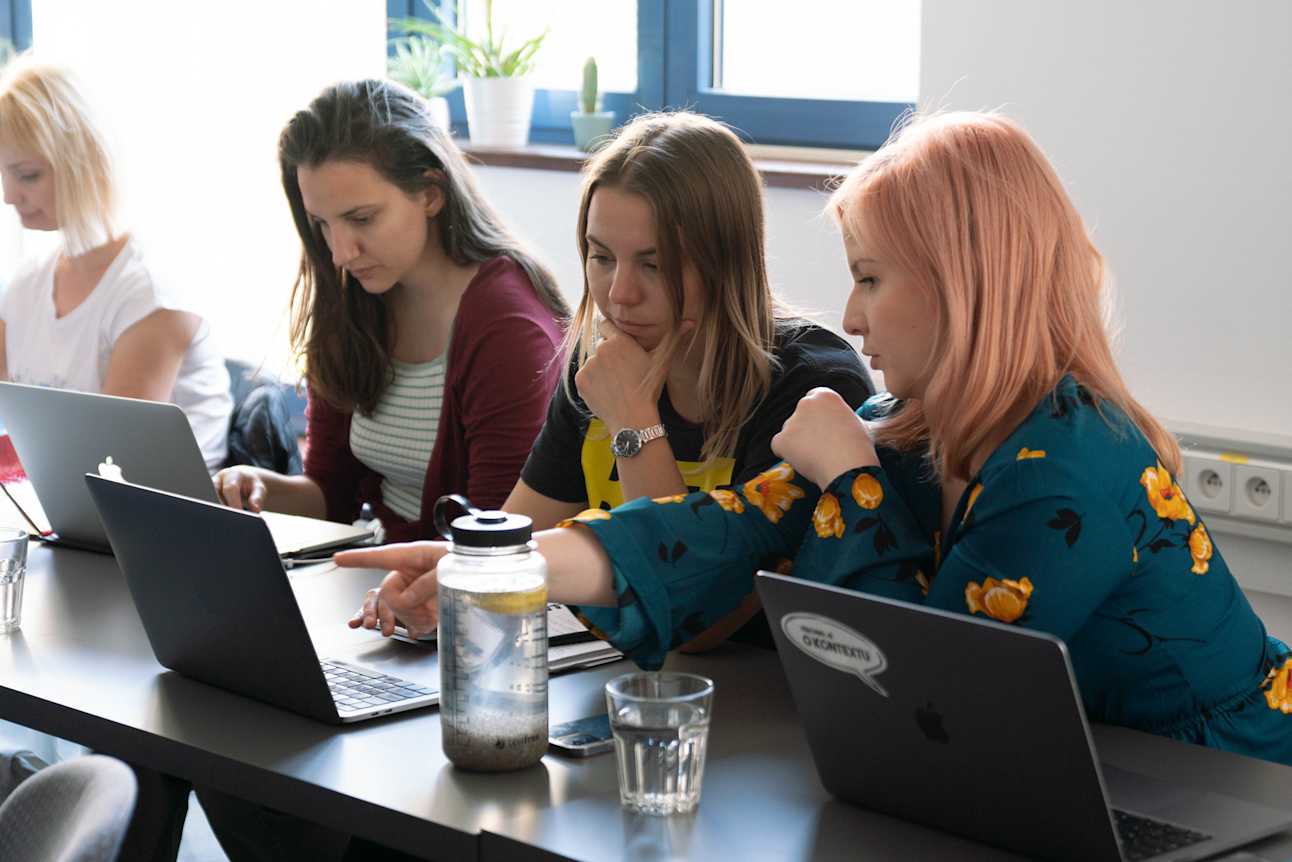
The Path to IT
But then COVID happened, which meant the end of travelling.
Exactly. Three days before my departure, I was told I couldn’t go to Norway. So I stayed in the Czech Republic and was already trying various courses from Czechitas. First vector graphics, then HTML and CSS, mostly one-day or weekend courses. Then I decided to go all in because I had nothing else to do. So I attended courses and looked for a job. I told myself I would already look for a job in IT or at least somewhere that intersected with IT. And I found one.
But that’s skipping ahead, isn’t it?
No, no, I’m not skipping ahead…
You took some courses, but then you went to the Digital Academy.
No, before that, I got into Škoda Auto, where I was in the IT department. People there mostly dealt with business and various projects, often project managers, but there were also developers. I thought it would be great to be at least around that.
What position did you get there?
I was a project manager’s assistant.
So it was more oriented toward project management at that time?
A little, yes, but I mainly wanted to look over the IT guys’ shoulders and figure out whether I’d enjoy frontend, backend, or something else more. And while I was working there, I had quite a bit of free time, so I started taking more and more courses, and then I enrolled in the Digital Academy for web development.
Does that mean you were already working full-time at Škoda during the Digital Academy?
Yes, that’s right.
And how did the Digital Academy help you?
The Digital Academy really captivated me. By then, I knew I wanted to do frontend. I liked that there was some programming, but there was also the visual side, so it wasn’t just logical or analytical but…
Sorry to interrupt, but frontend and graphics are somewhat close. When and why did frontend take precedence over graphics, which you naturally leaned towards already in Vietnam?
It was mainly about job opportunities, and also, I didn’t have much confidence in my graphic skills. I was self-taught and didn’t see many courses or a comprehensive package that would help me. So I saw more value in frontend. I thought there was a bit of design, the opportunity to work as a frontend developer, and at the same time, I enjoyed it, so why not try it? So I enrolled in the web academy, and I got really into it. I loved the whole atmosphere, with great mentors, lecturers, and coaches. I started enjoying it a lot.
Getting to Know Czechitas
For beginners, free, Nikča managed it, so can you. Come and see that IT is also for you.
How long did it take to transition from a project manager’s assistant to frontend development?
I was a project manager’s assistant for about two years, and then I was in the Academy during that time. My contract ended towards the end of the Academy, and despite a lot of persuasion, I didn’t renew it.
And didn’t they offer to transfer you somewhere else?
They did. They offered to keep me there for a while longer. I was employed under an external company, not directly under Škoda, and they offered, but I felt I didn’t want to keep being an assistant and then maybe get transferred somewhere after this project ended… Because I knew this project wouldn’t end anytime soon. So I wanted to close that chapter and start fresh in a new environment with new challenges.
Was there a gap between the two?
It was summer. I finished in May, took June and July off, and started work in August, I think on the 22nd.
Did you go anywhere during that time?
I went on vacation with my dad. It was my first vacation with him in my entire life. We went to Egypt to relax a bit. Then I started working at the company where I still am today.
And how long have you been in frontend development?
It’s been two years now.

Surviving in Survivor
Now let’s get to Survivor. If you had to compare, was it harder to get into Survivor or IT?
Getting into Survivor was definitely harder.
Really?
Yes, even though I was nervous during every round of job interviews, it was never as intense as going through the Survivor casting process.
Because it was your big dream to participate in Survivor. And I heard you’ve seen 46 seasons of American Survivor?
I’ve seen 45 so far. The last one was airing while we were on the island.
So you still need to catch up on that one...
Exactly. And I think the 47th season starts on September 18, so I need to finish watching before then.
How do you manage to keep up?
I just dedicated part of my life to watching Survivor. Some people watch Game of Thrones, which I haven’t seen, and I watch Survivor. And mind you, in the Czech Republic, the seasons have around 32 episodes, while the American ones have 11-13, so it’s not that bad. Plus, each episode is about 45 minutes, sometimes an hour and a half, and the final episode is maybe two hours, but in terms of hours, it’s not as much as watching 45 seasons of Czech Survivor. And I’ve also seen some Australian seasons.
What do you enjoy about it?
When I was little, I thought it was great. They’re on the beach, having fun, sometimes playing, sometimes it’s sad when they have to vote someone off. As a child, I didn’t fully understand it, but over time, I began to enjoy all the different aspects. The fact that you’re pushed to your limits, that you’re in conditions you’d never experience in real life. You wouldn’t voluntarily starve at home. I’ve tried fasting before, but it’s nothing compared to what you go through on the island.
So, how did reality differ from what you expected? Plans are usually completely different from reality. How did you prepare, and what was it actually like?
I’ll start with the second question because it makes more sense that way. It was completely different. You have this idealised image from watching it on TV, you imagine what it’s going to be like. Of course, you’re aware that in America, they’re in Fiji, here it’s in the Dominican Republic, but you also watch the Czech and Slovakian version. So, it looks completely different, and in the end, it’s all different.
As soon as you get on the plane, it’s completely different. And even during the casting process, it’s all done differently. You don’t get to choose the people. The whole communication with people, everyone there wants their screen time, people are competing with each other. And I’m not that type of person. I didn’t go there to get screen time. I went there to enjoy it, ideally to win. But suddenly you realise the game isn’t as simple as it looks on TV. Suddenly you think, wow, I don’t have all the information like I do when I watch it on TV. So, the preparation was different because on TV, you only see a distorted fairy tale.
I’ve always struggled with self-confidence, so I wasn’t sure they’d really picked me until the last day before signing the contract. Even up until the flight, I didn’t believe I’d actually be going. I was afraid someone might call and say they found someone better and they wouldn’t take me. So, I was preparing, but at the same time, I had this mental block that I couldn’t be too confident or prepare too much because if it didn’t happen, I’d be disappointed.
Of course, I bought some Survivor puzzles. I tried to prepare myself for the fact that there would be a lot of waiting, so I could stay calm when there was waiting. And that really paid off. A friend taught me how to start a fire, which didn’t go so well in the last episode… I prepared for things like that. I tried to prepare physically, but it’s completely different on the island. For example, I went to shoot some hoops recently, and the ball just kept going in. But on the island, I couldn’t hit the target. When I aimed, it just wouldn’t go in. I don’t want to make excuses because there were people who did great. I also struggled a lot with my own mind, I admit. One should be even more relaxed, enjoy it, and not be so stressed. I was really stressed, putting a lot of pressure on myself to get as far as possible.
You mentioned a distorted fairy tale. Did you ever want to leave? Were there moments when you wanted to give up? Was it mentally challenging?
It was challenging, but I think all of us had a moment where we thought we couldn’t take it anymore and wanted to leave. It doesn’t matter why. But I’m the type of person who never gives up. So, whenever I had that moment of wanting to quit, I’d say to myself, no. You’re someone who doesn’t give up, you’re going to stay here.
I thought about the people at home who tried to get here. Over 10,000 people applied. I always told myself I had to prove to those people that I deserved their respect. So, even if they had to cut off my hand, I’d stay there until they dragged me away. And that really helped me, knowing I would stay there at any cost.
Did you gain any insight into the competition? Can you evaluate how the selection process for participants works?
I had this theory that the production team creates certain templates. They need a pretty blonde, a drama queen, a strongman…
So, specific roles?
Yes, specific roles. Even in terms of character.
So that the audience can relate to them…
Yes, so they can relate, and I think also to create conflicts and tension. To make it dynamic. Because if you had twelve people who all got along and became best friends, it wouldn’t be entertaining.
So, I think it’s like that, but I don’t know for sure, I couldn’t peek behind the scenes. And I wouldn’t want to, because if I knew the things behind it , I couldn’t play anymore, and I’d like the opportunity to play again in the future.
If you had to name the role you played for the viewers, what would it be?
Well, opinions vary. They saw me as a big fan; I may have disappointed some for not making big moves, while others were inspired by the fact that I stayed as a woman and fought for all women. Some saw me as a strong girl from the start, both mentally and physically. I don’t know, everyone has their own opinion. People argue among themselves; some liked my style of play, others hated it. And I actually enjoy that because I feel the same way. I love certain players from Survivor, while others argue that they were the worst. And it goes the other way too; someone loves a player that I can’t stand. Everyone finds their own favourite.
You stayed with seven men as the last woman, right?
Yes, we said we were like Snow White and the Seven Dwarfs.
When you look at the Australian or American versions, can you say that men are more resilient and have a better chance of success? And now I’m also thinking of the comparison to the IT world…
I don’t think so. In America, if you compare, it’s about 26 to 19, or 27 to 19, with 27 men winning versus 19 women. Out of that, one man and one woman each won twice. And whether men are more resilient… I don’t think you can generalise like that. There are women who are extremely strong and resilient and can handle it, just as there are those who want to go home after a week. And there are men who endure, but also men who break down and want to go home after a month. You can’t completely generalise and say men are stronger, women aren’t, and vice versa. And I don’t think it’s like that in IT either.
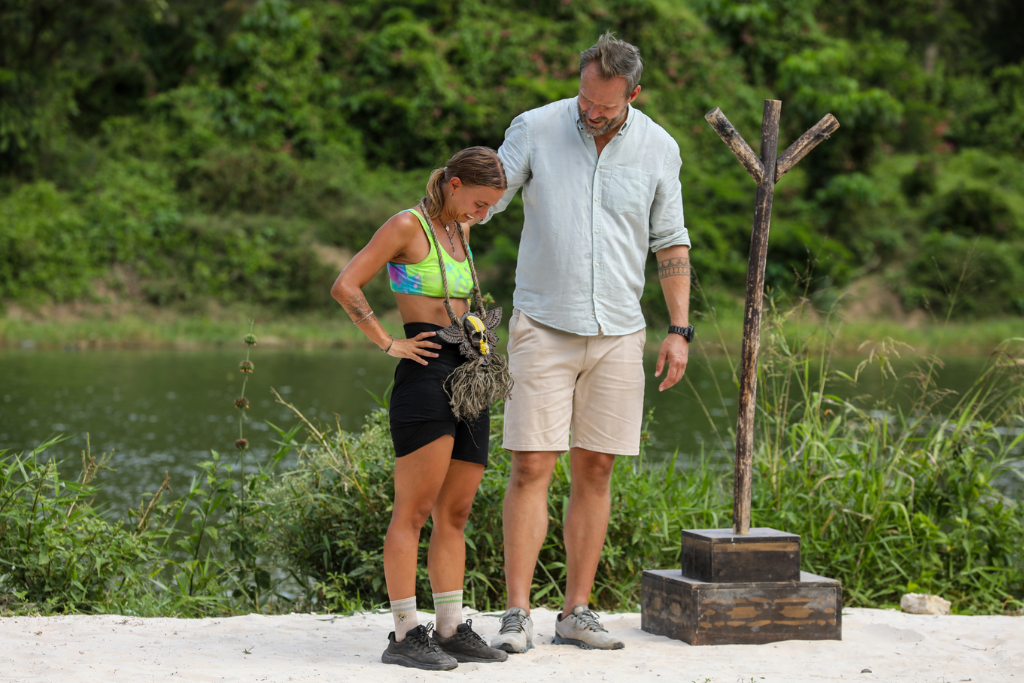
What do IT and Survivor have in common?
Do you think there are qualities that are useful both in Survivor and in IT? I think you’re someone who likes challenges. Would you say IT was a challenge for you too?
Definitely. Because I didn’t study it. In terms of challenges, yes, it can be linked somehow. IT was a big challenge for me. I came from a completely different background. I didn’t have any background in it from secondary school or university.
Tourism isn’t the best background for IT?
Not exactly. But I think that thanks to that, I have some soft skills that I can use in IT. And that can help me solve problems. But it is a challenge. Getting into IT was an extreme challenge for me.
What soft skills do you think help you in IT?
Well, for me, it’s problem-solving. I like to dig into things and solve them. And I think that’s connected to the puzzles in Survivor. When I have a puzzle, I won’t stop until I’ve solved it; I don’t even want advice. Someone might tell me I’ve got a part of it right, which is fine, but don’t tell me more, don’t tell me what to do next. And in this sense, I see it as a soft skill that I like to solve problems. Or maybe understanding. Women have a different perspective and understand things differently. And in this, we can complement men. A man sees it differently than a woman. And I think when a team is made up of both men and women, it creates a good symbiosis.
Can you think of a quality that is most important for someone to be successful and win Survivor? Maybe your perseverance?
Perseverance is useful in both IT and Survivor. I thought about what could help me. I surprised myself that I wasn’t able to go against my values. But maybe if I had played more ruthlessly, not looked right or left, and put emotions aside, it might have helped.
But is that possible? Doesn’t it make you act differently from who you really are? And in the end, doesn’t it hurt you more?
I don’t think you can pretend to be someone else for 77 days. So I thought if someone isn’t as empathetic as I am, it might help them. But at the same time, I know that I wouldn’t have played any differently. And if I get the chance to play again, the game will be different because I will have grown internally in the meantime. But I know that at that moment, I played the way I felt, and I wouldn’t change any decision I made there.
Do you think there are certain traits that winners share? Or is it just coincidence, the mood of society? I’m asking because I want to compare it to the idea that persistence is often the common thread that connects successful women in tech.
Persistence, definitely. Never giving up. I believe that anyone can overcome even the worst situations if they have just a bit of light at the end of the tunnel. What’s interesting about Survivor is that anyone can win. It can be someone who is physically gifted, but also a girl who barely stood out and just followed someone else. There have been so many winners that it’s impossible to generalise who can win. Once, a girl won who was extremely cunning and lied her way to victory.
Like you’ve said in an interview before, it’s not the Olympics.
It’s not the Olympics. It’s not about someone being able to prepare with better physical performance or having superior talents. Social skills are, in my opinion, extremely important, but there’s a difference in the Czech version.
Social skills—what exactly do you mean by that?
Social game. Before the game started, one of the best American players gave me advice. He sent me a video and said that if I needed anything, I should feel free to reach out. He told me that you need to understand people, have a genuine interest in them, and care about them—play with them on a human level. That was a key moment for me because I genuinely care about people, even outside of Survivor.
Which confirmed for you that you didn’t have to pretend anything.
Exactly. And in terms of the social game, I read people, analysed them. I would compare it to IT, where you have to analyse a problem or what you want to solve. Only then can you start coding or creating something. I consider that to be a strong social game because I built strong bonds with people when I needed to. They never even thought about voting me out. Or maybe they did, but in the end, they didn’t do it because I was able to push someone else forward, making them think that person was more dangerous than I was. Why would you vote me out? Vote out this person instead. That’s what I consider social skills that a person needs.
Why didn’t you want to reveal that you were a programmer during the competition?
Well, because during the casting process, they already learn a lot about you, which isn’t always a good thing. You want to keep your cards as close to your chest as possible. You don’t want to show your hand, just like in a game of rummy or poker, especially not right at the beginning. They already knew I had watched a lot of series and that I was a fan. So, I decided I didn’t want the word “programmer” to come up and instead, I came up with a version that wasn’t a lie but would hopefully distract them a bit. People often associate being in IT and being a woman with being very smart. And that’s not something you want in the game. A smart woman is simply dangerous.
So you concealed it to avoid being seen as a smart woman…
Yeah, I figured it might be too much for people, so I chose to keep it quiet. But I told the truth—I said I worked in an advertising agency. I just didn’t mention that I’m a developer.
How did your workplace react to you going on the island?
I first told one colleague, who was absolutely thrilled. Then it went to London, since I work for a British company. At first, they were a bit taken aback, but in the end, the response was great—everyone supported me and gave me the green light. Everything was sorted out perfectly, and they gave me three months off.
Did you miss programming?
I did miss it. I was really scared because I’m still in a junior position and haven’t coded that much. I was worried I’d forget how to write code. But when I got home, it all came back.
Women in IT
What about the future of Niki the nomad? Are you already choosing a van?
I’d like a minivan, ideally a Volkswagen. A lot of people tell me it has a low roof, but I’m small and I don’t want it to be too noticeable when I’m parking somewhere outside a campsite, maybe not entirely legally. Though I’m also open to something like a Fiat Ducato, which is a bit bigger but not too huge. I did a lot of research on this when I was planning to go to New Zealand. I looked at various van layouts to see how it should be set up.
I think you’ve already figured out how you’ll work in it, what kind of table you’ll need…
Yeah, I definitely want it to be set up so that I can sit down, but also stand, because I like working while standing. So I’m thinking about how it could look, and I’m still analysing it. But I haven’t sorted it out with work yet. I’m not sure when I’ll set off or how it will be managed—whether I’ll go somewhere for three months and then come back, or if I’ll go for a year or two straight.
At what point in your job could you leave? Do you already have the experience to work remotely without any issues?
We’re actually fully remote. I only go to the office once in a while, so it could work, but it depends on how they feel about it. Just telling someone you’ll be working from a van—people might not take that the same way. We’ll see. I haven’t told them yet. A lot of people have heard about it, but nothing is official yet.
As a woman in IT, what do you bring to the office?
I think I definitely bring soft skills. But I also believe I’m technically strong, otherwise, they wouldn’t keep me there. In our team, I think we all complement each other well. I don’t think I bring only soft skills. I think they’re generally happy with me.
Have you thought about passing on your knowledge to other women, perhaps as a mentor?
I’ve already mentored at Czechitas. I took a break from it because I wanted to focus on learning more myself. But I’d love to get back to it. I enjoy teaching others what I know.
Would you like to see more women in IT?
Definitely. It’s great that there are more and more women in IT. It’s a slow process, but it’s happening. I’d welcome more women, but I don’t mind working with men either. We have a colleague who’s leaving, and it was great that there were two of us women, both from Czechitas, who went through the Web Academy. I’ve always had more male friends, but the female element gives me a sense of security. With women, you can talk about different things.
When I was troubleshooting a bug with a more senior female colleague, she explained it differently than the guys. And even if there was a junior woman I could support and help, or someone more senior I could look up to, I’d love that. I really enjoy supporting women. The women’s world is a bit different—we compete with each other a lot, but with my female colleague, we support each other and have a great vibe. In the women’s world, it seems like there’s a lot of competition, and I wish women would support each other more, not just in IT but in general. I don’t mind if a junior becomes more successful than me. I’d be happy to support her, and it would motivate me to improve as well.
Lastly, if someone met you on the street and said they were inspired by your journey into IT but mentioned that you also managed to compete in Survivor, that you’re on a completely different level than they are, what would you say?
I’d tell them they can do it too. I believe that anyone can do it if they set their mind to it—whether it’s getting into IT or playing Survivor. If you want something, go for it and work hard. There might be breakdowns when you feel like crap and things aren’t going well, but another opportunity will come.
I talked about losing Survivor with my pastor and told him that it physically hurts, and I wasn’t sure if I could be angry. I asked him if it’s okay for it to hurt, if I could be upset. And he told me it’s good that it hurts because it means you cared. If it didn’t matter to you, you wouldn’t have these emotions. But don’t worry, other doors will open for you, and you should always think that if something like this happens, something better is waiting for you. And I really believe that.
That’s what I’d like to tell people—if you want something, go for it 100%. If it doesn’t work out, that’s okay. Cry, complain, but you have to move on. You can’t drown in it. Something better will come, always.
Let's talk
Got a business challenge that’s looking for an innovative digital solution? Or, perhaps you’re interested in joining our collective of digital pioneers? Maybe you just want to know a little more about what we do. In any case, we’d love to hear from you.
